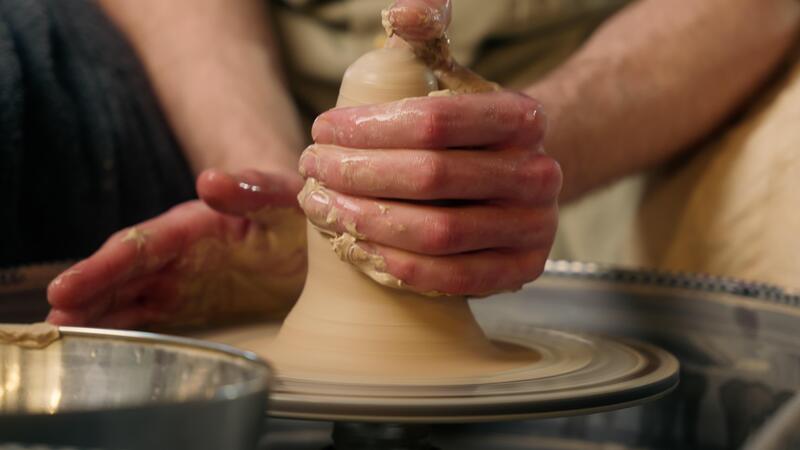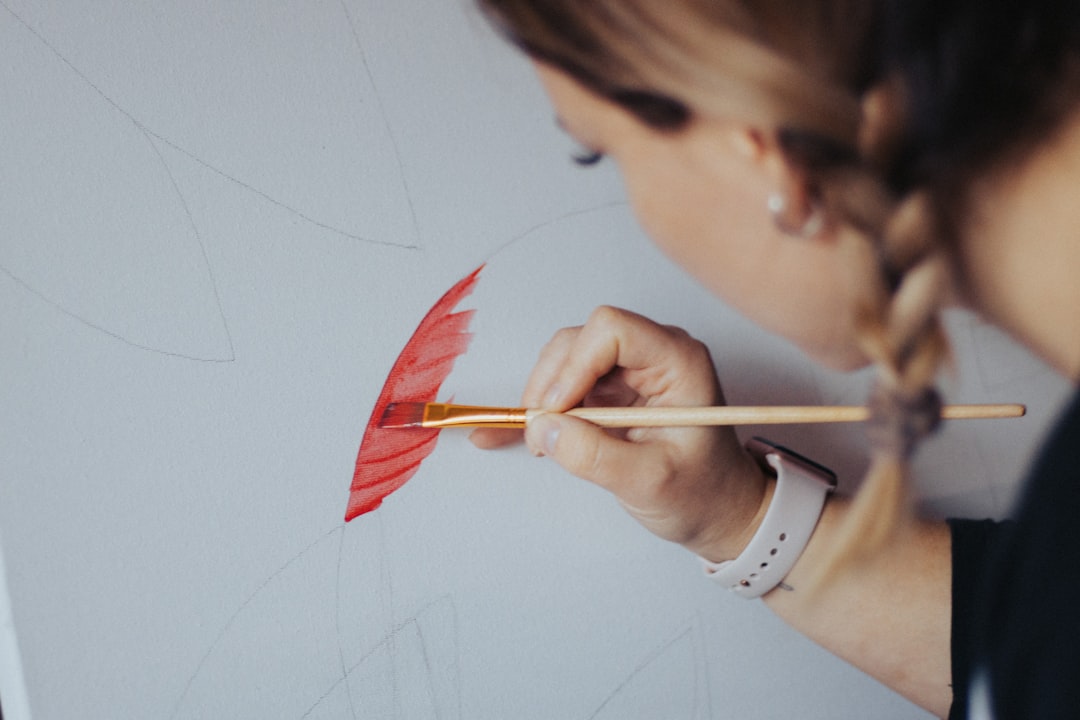
The Architecture of a Fulfilling Life: Why Hobbies Are a Non-Negotiable Pillar of Modern Wellness
In our relentless pursuit of productivity and success, the modern lifestyle often leaves little room for activities pursued purely for pleasure. We optimize our schedules, streamline our workflows, and chase career milestones, sometimes forgetting the essential components that build a truly rich and fulfilling life. Beyond work, family, and social obligations lies a powerful, often underestimated, domain: the world of hobbies. Far from being mere frivolous pastimes or luxuries for those with ample free time, hobbies are a fundamental pillar of holistic health. They are the threads that weave together our mental, physical, and social well-being, creating a resilient and vibrant tapestry of existence. This article explores the profound impact of hobbies, delving into their psychological benefits, their role in fostering community, and practical ways to integrate them into even the busiest of lives, ultimately arguing that they are a non-negotiable for achieving genuine Work-Life Balance and personal contentment.
The Science of Engagement: The Psychological and Physiological Impact of Hobbies
The benefits of engaging in a hobby extend far beyond simple enjoyment. A growing body of research highlights the significant, measurable effects that dedicated leisure activities have on our brains and bodies. From reducing stress to improving cognitive function, hobbies are a powerful tool for enhancing overall Health & Wellness.
The Neuroscience of Flow and Fulfillment
One of the most profound psychological benefits of a hobby is its ability to induce a state of “flow.” Coined by psychologist Mihaly Csikszentmihalyi, flow is the experience of being completely absorbed in an activity, where time seems to disappear and self-consciousness fades. Whether you’re painting, playing a musical instrument, coding, or engaged in intricate DIY Projects, this state is incredibly beneficial for Mental Health. During flow, the prefrontal cortex—the part of the brain responsible for self-criticism and analysis—quiets down, leading to a feeling of liberation and deep focus. This process is a form of active Mindfulness, providing a powerful antidote to anxiety and the chronic stress of modern life. Furthermore, making progress and achieving small milestones in a hobby triggers the release of dopamine, the “feel-good” neurotransmitter, reinforcing positive behavior and boosting motivation and mood.
From Active Pursuits to Cognitive Gains
Hobbies can be categorized by their level of physical engagement, and both active and sedentary pursuits offer unique benefits. Active hobbies like hiking, cycling, or practicing yoga provide excellent Fitness Tips in action, improving cardiovascular health, strength, and flexibility. Activities like Urban Gardening not only get you moving but also connect you with nature, which has been shown to lower cortisol levels. This focus on physical well-being is a cornerstone of Holistic Health.
Conversely, more intellectually demanding hobbies build cognitive resilience. Learning a new language, playing strategy games like chess, or even following Investment News as a form of self-education challenges the brain, creating new neural pathways. This continuous learning contributes to neuroplasticity, which can help maintain cognitive function as we age, supporting the principles of Aging Well and long-term brain health. Even seemingly simple activities like Reading and engaging with Book Reviews can expand vocabulary, improve analytical thinking, and increase empathy.

A Catalyst for Connection: Hobbies as the Foundation of Community
hands shaping clay on pottery wheel – Skillful Hands of a Potter Shaping Wet Clay on a Pottery Wheel in …
In an increasingly fragmented and digital world, genuine human connection can feel elusive. Hobbies serve as a natural and powerful bridge, connecting individuals through shared passions and creating robust communities that combat loneliness and foster a sense of belonging. This social dimension is critical for a well-rounded life, complementing our Family Life and professional networks.
Finding Your Tribe in a Shared Passion
Many hobbies are inherently social. Joining a local sports team, a book club, or a weekly cooking class immediately places you in a group of like-minded individuals. These environments foster low-pressure social interaction, where the shared activity serves as a natural icebreaker. This is a cornerstone of Community Living. For example, participating in a community garden not only provides fresh produce and Gardening Tips but also creates a space for neighbors to interact and collaborate. Similarly, taking up Volunteering as a hobby connects you with others dedicated to Social Impact, providing a profound sense of purpose and shared identity that strengthens both individual well-being and the community fabric.
Building Digital and Local Communities
The rise of the internet has expanded the community-building potential of hobbies exponentially, which is especially relevant in our era of Remote Work. Online forums, social media groups, and dedicated apps connect enthusiasts from around the globe. Whether you’re sharing Healthy Recipes on a food blog, discussing Sustainable Fashion trends on Instagram, or collaborating on a coding project on GitHub, these digital spaces provide invaluable support, knowledge-sharing, and camaraderie. At the same time, hobbies can ground us in our local environment. Visiting local Cultural Events, supporting small businesses for craft supplies, or joining a neighborhood cleanup initiative as part of an Eco-Friendly Living hobby strengthens your connection to the place you call home.
Integrating Hobbies into a Modern, Balanced Lifestyle
The most common barrier to adopting a hobby is the perceived lack of time or resources. However, with intentional planning and a shift in perspective, integrating fulfilling activities into your life is not only possible but essential for preventing burnout. It requires conscious effort in Financial Planning, time management, and creating a supportive home environment.
The Economics of Engagement: Hobbies for Every Budget
A fulfilling hobby does not need to be an expensive one. Financial constraints should never be a barrier to entry. Many of the most rewarding hobbies are free or low-cost.

- Free Hobbies: Hiking in local parks, Reading books from the library, practicing Meditation, starting a bodyweight fitness routine, or writing.
- Low-Cost Hobbies: Meal Planning and experimenting with budget-friendly Food & Cooking, container gardening on a balcony, sketching with a simple pad and pencil, or learning a skill through free online tutorials. These align well with principles of Minimalism and thoughtful consumption.
- Investment Hobbies: Activities like photography, woodworking, or collecting may require an initial investment, but smart Budget Tips like buying used equipment or starting with basic tools can make them accessible. The key is to align your hobby with your Personal Finance goals.
Time Management and Creating a Conducive Space
To overcome the “I’m too busy” mindset, treat your hobby with the same importance as any other appointment. Schedule it in your calendar. Even 15-30 minutes a day dedicated to a hobby can have a significant impact on your Stress Management. This is a core tenet of effective Productivity Tips—recognizing that rest and recreation are not detractors from productivity but essential components of it.
Your physical environment also plays a crucial role. Dedicate a small corner of your home to your hobby. This could be a comfortable chair for reading, a cleared-out section of the garage for Home Improvement projects, or a simple yoga mat in the living room. Good Home Organization and Decluttering can help you carve out this space, signaling to your brain that this is a place for relaxation and engagement. Integrating Technology for Home, such as a smart speaker for ambient music or an app for guided meditation, can further enhance the experience.
Recommendations: Choosing Your Path and Best Practices
With a world of options available, choosing the right hobby can feel overwhelming. The key is to align the activity with your personality, goals, and lifestyle. Breaking down hobbies into categories can help you identify what might resonate most with you.
A Taxonomy of Hobbies: Finding Your Fit
- Creative & Skill-Based: These hobbies involve making or creating something. Examples include painting, writing, learning a musical instrument, coding, graphic design, Food & Cooking, or crafting Natural Beauty and skincare products.
- Physical & Outdoor: For those who need to move their bodies and connect with nature. This includes sports, hiking, yoga, running, cycling, and Gardening Tips for both large and small spaces (Outdoor Living).
- Intellectual & Analytical: Hobbies that challenge your mind. Examples are learning a new language, playing chess, studying a topic of interest like history or Personal Finance, or engaging in citizen science projects.
- Community & Collection: Hobbies centered around social interaction or curating items. This includes Volunteering, joining clubs, collecting stamps or vinyl records, or even caring for pets (Pet Care).
Best Practices and Common Pitfalls to Avoid
Once you’ve chosen a path, follow these best practices to ensure your hobby remains a source of joy, not another source of pressure.
Do:
- Start Small: Don’t invest in expensive gear immediately. Borrow, rent, or buy entry-level equipment to see if you truly enjoy the activity.
- Focus on the Process: The goal is enjoyment and learning, not perfection. Embrace being a beginner and celebrate small improvements. This is a key part of Self-Improvement.
- Join a Community: Whether online or in person, connecting with others can provide motivation, support, and valuable tips.
Don’t:
- Monetize Too Quickly: The pressure to turn a hobby into a “side hustle” can strip the joy out of it. Let it be something you do just for you.
- Compare Yourself to Experts: It’s easy to get discouraged by watching experts on social media. Remember that they were once beginners too. Focus on your own personal journey.
- Let it Become a Chore: If your hobby starts to feel like an obligation, it’s okay to take a break or try something new. The purpose is to recharge, not to drain you further.
Conclusion: Investing in Your Own Well-Being
In the grand equation of a well-lived life, hobbies are not an optional variable; they are a critical constant. They are the personal projects of the self, providing a space for growth, relaxation, and connection that our professional and domestic lives often cannot. By engaging in activities we are passionate about, we build mental resilience, improve our physical health, and forge meaningful social bonds. Hobbies are a direct investment in our own happiness and a powerful declaration that our time, our interests, and our joy matter. Whether you are tending to a plant, learning a new chord on a guitar, or volunteering in your community, you are actively architecting a more vibrant, balanced, and fulfilling existence. The pursuit of a hobby is, ultimately, the pursuit of a richer, more complete self.
Archives
- February 2026
- January 2026
- December 2025
- November 2025
- October 2025
- September 2025
- August 2025
- July 2025
- June 2025
- May 2025
- April 2025
- March 2025
- February 2025
- January 2024
- October 2023
- September 2023
- August 2023
- July 2023
- June 2023
- May 2023
- April 2023
- March 2023
- February 2023
- January 2023
- December 2022
- November 2022
- October 2022
- September 2022
- August 2022
- June 2022
- May 2022
- April 2022
- March 2022
- January 2022
- December 2021
- November 2021
- October 2021
- August 2021
- November 2020
- July 2020
- May 2020
- April 2020
- March 2020
- August 2018
- July 2018
- June 2018
- April 2018
- March 2018
Categories
- Aftercare Procedures
- Age Groups
- AI/ML
- Alternative Medicine
- Ambient Computing
- Animal Health
- Animal Husbandry
- Animals
- Anti-Aging
- Architectural Design
- Art And Technology
- Auditory Science
- Augmented Reality
- Automation
- Babies
- Baby
- Beauty & Skincare
- Beauty Industry
- Biohacking
- Biomechanics
- Book Reviews
- Breastfeeding
- Budgeting
- Budgeting Strategies
- Business
- Cardiovascular Health
- Career Advice
- Career Development
- Career Growth
- Cats
- Chess
- Chronobeauty
- Circular Economy
- Civic Technology
- Cleaning Tips
- Cloud Computing
- Cognitive Health
- Cognitive Performance
- Cognitive Science
- Community
- Community Building
- Community Engagement
- Community Living
- Computer Vision
- Consumer Guides
- Consumer Trends
- Container Gardening
- Content Analysis
- Content Non-Technical
- Content Strategy
- Cooking Techniques
- Cosmetic Chemistry
- Cultural Events
- Cycling
- Data Analysis
- Data Engineering
- Data Governance
- Data Science
- Database
- Design Psychology
- Design Trends
- Developer Productivity
- Diet
- Diet
- Diet And Nutrition
- Digital Identity
- Digital Media
- Digital Wellbeing
- DIY
- DIY Projects
- Dogs
- Engineering Culture
- Entertainment News
- Environmental Impact
- Environmental Science
- Equity Compensation
- Ethical AI
- Exercise
- Exercise Science
- Exercise Technique
- Exotic Pets
- Fall Gardening
- Family
- Family Health
- Family Life
- Fashion Business
- Fashion Industry
- Fashion News
- Fashion Tech
- Financial Analysis
- Financial Optimization
- Financial Planning
- Flooring Maintenance
- Food
- Food Psychology
- Food Safety
- Food Science
- Food Tech
- Functional Fitness
- Functional Training
- Future Of Work
- Garden Care
- Garden Maintenance
- Gardening Tips
- Geospatial Data
- Gig Economy
- Greece
- Greek
- Greek Food
- Green Technology
- Gymnastics
- Hardware Engineering
- Health
- Health And Wellness
- Health Informatics
- Health Science
- Health Tech
- Health Technology
- Healthcare
- Healthcare Management
- Healthy Eating
- Healthy Recipes
- Holistic Health
- Holistic Wellness
- Home & Living
- Home Decor
- Home Financing
- Home Health
- Home Improvement
- Home Maintenance
- Home Organization
- Home Styling
- Horticulture
- Household Chemistry
- Identity Management
- Indoor Gardening
- Industrial Design
- Industry Analysis
- Infant Nutrition
- Infrastructure Management
- Ingredient Deep Dive
- Integrative Health
- Integrative Medicine
- Interior Design
- Internet of Things
- Internet of Things (IoT)
- Invalid Request
- Investment Strategies
- Investment Strategy
- IoT
- Kids
- Leadership Development
- Learning Strategies
- Lifestyle
- Lifestyle Brands
- Lifestyle News
- Lifestyle Optimization
- Literary Criticism
- Literature
- Logistics Management
- Machine Learning
- Material Science
- Materials Science
- Meal Planning
- Media Analysis
- Meditation
- Mental Health
- Mental Performance
- Mental Wellness
- Miami
- Miami Food
- Mind And Body
- Minimalism
- Mobile Development
- Neuroscience
- No Applicable Categories
- Nursing
- Nutrition
- Nutrition News
- Open Source
- Operating Systems
- Operational Resilience
- Opinion
- Organization Tips
- Outdoor Living
- Over 40
- Over 50
- Over 60
- Parenting
- Parenting
- Parenting Strategies
- Performance
- Performance Optimization
- Personal Development
- Personal Finance
- Personal Growth
- Personal Productivity
- Pet Care
- Pet Safety
- Philosophy
- Plant Care
- Politics
- Product Formulation
- Productivity
- Productivity Engineering
- Protein
- Psychology
- Psychology of Space
- Quantified Self
- Reading Culture
- Real Estate Investment
- Recipes
- Regulatory Compliance
- Remote Work
- Renovation Planning
- Resource Management
- Respiratory Health
- Responsible Pet Ownership
- Retail Strategy
- Retail Technology
- Robotics
- Science
- Seafood
- Seasonal Gardening
- Security
- Sedentary Health
- Self-Care
- Skincare Science
- Skincare Trends
- Sleep
- Sleep Health
- Smart Home
- Smoothies
- Social Impact
- Soft Skills
- Soil Health
- Spatial Computing
- Spatial Design
- Stress Management
- Supplements
- Sustainability
- Sustainability Science
- Sustainable Engineering
- Sustainable Fashion
- Systems Engineering
- Tax Optimization
- Tax Strategy
- Tech Investment
- Technical Writing
- Testing
- Travel
- Travel News
- Travel Safety
- Travel Tips
- Trend Analysis
- Tropical Plants
- Uncategorized
- Urban Gardening
- Urban Planning
- User Experience
- Veggie
- Vietnam
- Virtual Events
- Volunteering
- Wealth Management
- Wearable Technology
- Web Development
- Wellness
- Wellness Technology
- Winter Gardening
- Work-Life Balance
- Workplace Culture
- Workspace Setup
- World
- Writing
- Writing Skills
- Year In Review
- Yoga
- Yoga News
- Zero Waste




Leave a Reply